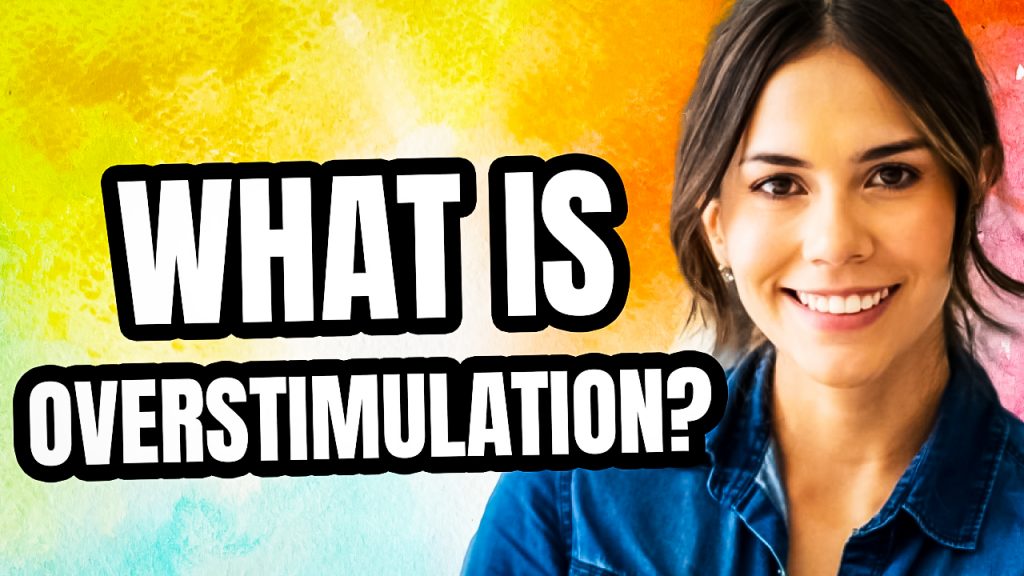What is Overstimulation?

Overstimulation refers to a state in which an individual experiences an excessive amount of
stimulation, causing them to feel overwhelmed, agitated, or exhausted. This can occur in a
variety of contexts, such as in social situations, sensory environments, or even in response to
digital media. Overstimulation can have a profound impact on an individual’s well-being,
affecting their mood, cognitive function, and physical health.
The causes of overstimulation can vary widely, depending on the individual and the context in
which they are experiencing it. For some individuals, overstimulation may be caused by social
situations that are too intense or chaotic. This might include crowded spaces, loud noises, or
overwhelming social interactions. Other individuals may experience overstimulation in response
to sensory environments that are too intense, such as bright lights, strong smells, or abrasive
textures.
In addition to social and sensory factors, digital media can also contribute to overstimulation.
The constant influx of information and notifications from digital devices can create a sense of
overload, causing individuals to feel distracted, anxious, or stressed. This can lead to a range of
negative outcomes, including reduced productivity, decreased quality of life, and even mental
health problems such as depression and anxiety.
Regardless of the cause, overstimulation can have a significant impact on an individual’s health
and well-being. The effects of overstimulation can be physical, emotional, and cognitive. For
example, individuals experiencing overstimulation may feel physically exhausted, tense, or
agitated. They may also experience emotional symptoms such as anxiety, irritability, or
depression. From a cognitive standpoint, overstimulation can affect an individual’s ability to
focus, remember information, or make decisions.
One of the most common types of overstimulation is sensory overload. Sensory overload occurs
when an individual is exposed to too much sensory input, such as bright lights, loud noises, or
strong smells. This can be particularly challenging for individuals with sensory processing
issues, such as those with autism spectrum disorder or sensory processing disorder. In these
individuals, the brain may have difficulty processing and filtering sensory information, leading to
a state of overload.
Social overload is another common form of overstimulation. This occurs when an individual is
exposed to too many social interactions or social cues, causing them to feel overwhelmed or
anxious. This can be particularly challenging for individuals who are introverted or who have
social anxiety. In these individuals, social overload can cause them to feel exhausted, stressed,
or even physically ill.
Digital overload is a newer form of overstimulation, and one that is becoming increasingly
common in today’s digital age. This occurs when an individual is exposed to too much digital media, such as social media, email, or text messages. The constant influx of information and
notifications can create a sense of overload, leading to distraction, anxiety, or stress.
There are a number of strategies that individuals can use to manage overstimulation. One of the
most effective strategies is to create a calm, quiet environment that is free from excessive
sensory input. This might involve reducing the amount of noise or light in a space, or taking
breaks from social interactions or digital media.
Another strategy is to engage in relaxation techniques such as deep breathing, meditation, or
yoga. These techniques can help to reduce feelings of anxiety or stress, and can promote a
sense of calm and relaxation.
Finally, individuals can also take steps to manage their digital media consumption. This might
involve setting limits on the amount of time spent on social media or email, or turning off
notifications on their devices. By creating boundaries around digital media, individuals can
reduce the sense of overload and promote a healthier relationship with technology.
In conclusion, overstimulation is a complex phenomenon that can have a profound impact on an
individual’s health and well-being. Whether caused by social, sensory, or digital factors,
overstimulation can lead to physical, emotional, and cognitive symptoms that can be challenging
to manage. However, with the right strategies and techniques, individuals can learn to manage
overstimulation and promote a healthier, more balanced lifestyle.
This Post is Brought To You By BetterHelp